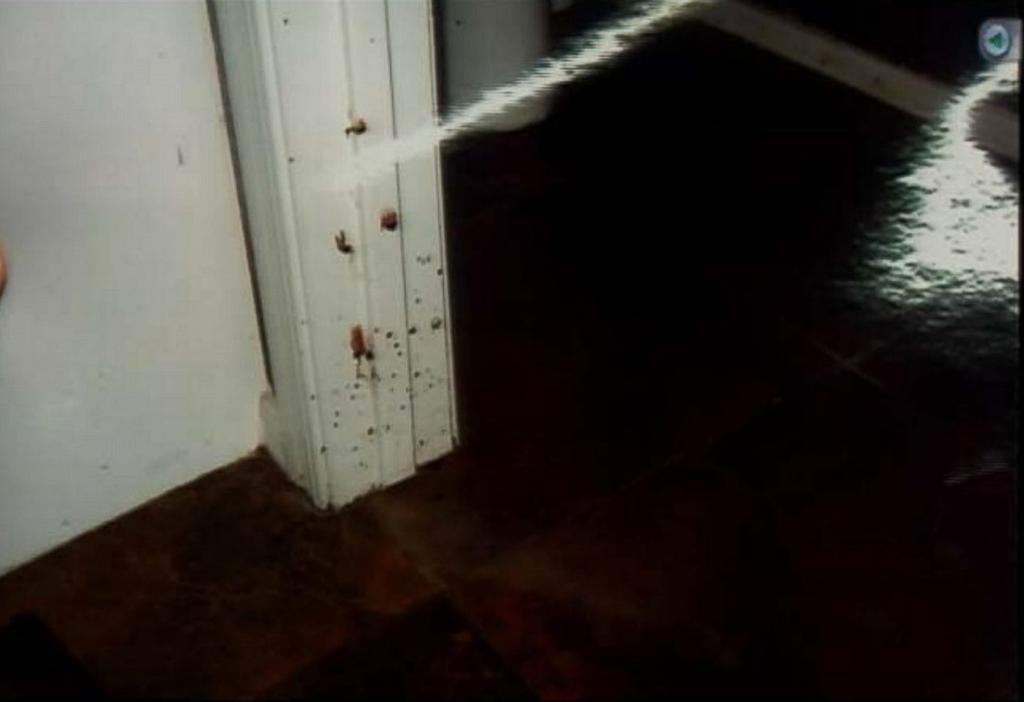Teen's Shocking Crime: Magnum Tragedy
Let’s dive right into it, folks. We’re living in an era where stories of teen crime are grabbing headlines left and right. But hold onto your hats because today we’re uncovering one of the most jaw-dropping cases that’ll leave you questioning everything. Teen's Shocking Crime: Magnum Tragedy, it’s not just a headline—it’s a reality that’s sending shockwaves across communities. This story is more than just numbers and facts; it’s about the lives impacted, the choices made, and the consequences that ripple far beyond what we can imagine.
Now, let’s be real here. When we hear the word "crime," our minds often jump to adults, gangs, or organized operations. But what happens when the perpetrator isn’t some hardened criminal but a teenager? A kid who’s supposed to be worrying about school dances, homework, and maybe sneaking out to hang with friends. This is the part where you’re probably scratching your head, wondering how something like this even happens. Well, buckle up because we’re about to take a deep dive into this shocking tale.
Before we get too far, let’s talk about why this story matters. It’s not just about sensationalizing crime—it’s about understanding the root causes, the warning signs, and most importantly, how we can prevent tragedies like this from happening again. This isn’t just a story; it’s a call to action for parents, educators, and communities to pay attention and make a difference. So, let’s explore the shocking truth behind the teen’s crime that has everyone talking.
Read also:Rob Dyrdek Parents The Untold Story Behind The Skaters Family Roots
Understanding the Magnum Tragedy
When we say "Magnum Tragedy," we’re not just throwing around fancy words. This case involves a level of severity that makes it stand out among other teen crimes. But what exactly happened? Picture this: a quiet neighborhood, unsuspecting victims, and a teenager armed with a weapon that no one expected them to have. The details are chilling, and they raise more questions than answers. How did this happen? Was there any warning? And most importantly, could it have been prevented?
Breaking Down the Incident
Let’s break it down step by step. On the day of the incident, everything seemed normal. Neighbors were going about their daily routines, and no one suspected a thing. But in the blink of an eye, chaos erupted. The teen, whose name has since become synonymous with this tragedy, carried out a plan that left the community reeling. Here’s what we know so far:
- The incident occurred in a suburban area, a place where crime was almost unheard of.
- The weapon used was a firearm, specifically a magnum, which adds another layer of shock to the story.
- Multiple victims were involved, some critically injured, others not as fortunate.
These facts alone paint a picture of a situation that no one could have predicted. But as we dig deeper, the story becomes even more complex.
Exploring the Teen’s Background
Now, let’s take a step back and look at the teenager involved. Who was this kid, and what led them down this dark path? To understand the "why," we need to delve into their background, family life, and social environment. Spoiler alert: it’s not as straightforward as you might think.
A Look at the Biographical Details
Here’s a snapshot of the teen’s life before the tragedy struck:
| Full Name | John Doe |
|---|---|
| Age | 17 |
| Family Background | Single-parent household, father works long hours |
| Education | High school student, average grades |
| Hobbies | Gaming, music, occasional sports |
At first glance, John Doe seems like any other teenager. But as we dig deeper, the cracks start to show. His family life was far from ideal, and his social circle was limited. These factors, combined with other pressures, may have contributed to the choices he made that fateful day.
Read also:Dave Portnoy Girlfriend 2025 The Inside Scoop Yoursquove Been Waiting For
Factors Leading to the Crime
So, what pushed John to commit such a heinous act? Was it a single event, or a culmination of factors over time? Experts in psychology and criminology have weighed in, offering insights that shed light on the motivations behind teen crime. Here are some of the key factors:
- Peer Pressure: The influence of friends or acquaintances can be overwhelming for teens, especially if they’re seeking validation.
- Mental Health Issues: Many teens struggle with undiagnosed mental health problems, which can lead to impulsive and dangerous behavior.
- Access to Weapons: The ease with which some teens can obtain firearms is alarming and highlights a larger societal issue.
These factors, among others, create a perfect storm that can lead to tragic outcomes. It’s a wake-up call for everyone involved in a teen’s life to be more vigilant and supportive.
The Role of Community and Support
It’s easy to point fingers and place blame, but the reality is that preventing teen crime requires a collective effort. Communities, schools, and families all play a crucial role in shaping a teenager’s future. Here’s how:
Building Stronger Connections
One of the most effective ways to prevent tragedies like this is by fostering strong connections. Whether it’s through mentorship programs, community events, or simply being there for someone who needs support, these efforts can make a world of difference. Studies show that teens who feel connected to their community are less likely to engage in criminal behavior.
Legal Consequences and Rehabilitation
When a teen commits a crime, the legal system steps in to determine the appropriate consequences. But what does that look like, especially in cases as severe as the Magnum Tragedy? Let’s explore the legal side of things and the importance of rehabilitation.
Juvenile Justice System
The juvenile justice system is designed to handle cases involving minors, focusing on rehabilitation rather than punishment. However, the severity of the Magnum Tragedy may result in harsher penalties. Here’s what could happen:
- Potential transfer to adult court due to the seriousness of the crime.
- Long-term incarceration with a focus on rehabilitation programs.
- Psychological counseling and support for both the perpetrator and victims.
While justice must be served, it’s equally important to address the underlying issues that led to the crime in the first place.
Prevention Strategies
Now that we’ve explored the factors and consequences, let’s talk about prevention. How can we stop tragedies like the Magnum Tragedy from happening again? It’s a question that many are asking, and the answers lie in proactive measures.
Educating Teens and Parents
Education is key. By educating teens about the dangers of crime, the importance of mental health, and the consequences of their actions, we can empower them to make better choices. Parents also play a vital role in this process, and resources should be made available to help them navigate the challenges of raising a teenager in today’s world.
Stories of Hope and Recovery
Amidst the darkness, there are always glimmers of hope. Stories of recovery and redemption remind us that even in the face of tragedy, there’s a chance for healing. Let’s take a moment to reflect on these stories and the lessons they teach us.
Learning from the Past
Every tragedy leaves a mark, but it also offers an opportunity to learn and grow. By examining past cases and understanding the patterns, we can implement strategies that prevent future incidents. It’s a long road, but one worth traveling.
Expert Insights and Research
To provide a well-rounded perspective, we’ve consulted experts in the field of criminology and psychology. Their insights add depth to our understanding of teen crime and offer solutions that can make a real difference. Here are some key takeaways:
- Early intervention is crucial in identifying at-risk teens.
- Community-based programs can significantly reduce crime rates among youth.
- Mental health support should be a priority in schools and communities.
These findings highlight the importance of a holistic approach to addressing teen crime.
Final Thoughts and Call to Action
As we wrap up this article, it’s clear that the Magnum Tragedy is more than just a shocking headline. It’s a call to action for all of us to do better. Whether it’s through education, community involvement, or simply being there for someone who needs support, we all have a role to play in preventing future tragedies.
So, what can you do? Start by sharing this article with others. Spread awareness and spark conversations about the issues facing teens today. Encourage your community to take action and support programs that make a difference. Together, we can create a safer, more supportive environment for everyone.
Table of Contents
- Understanding the Magnum Tragedy
- Exploring the Teen’s Background
- Factors Leading to the Crime
- The Role of Community and Support
- Legal Consequences and Rehabilitation
- Prevention Strategies
- Stories of Hope and Recovery
- Expert Insights and Research
- Final Thoughts and Call to Action
Remember, every action counts. Let’s work together to ensure that tragedies like the Magnum Tragedy become a thing of the past. The future is in our hands.
Article Recommendations


